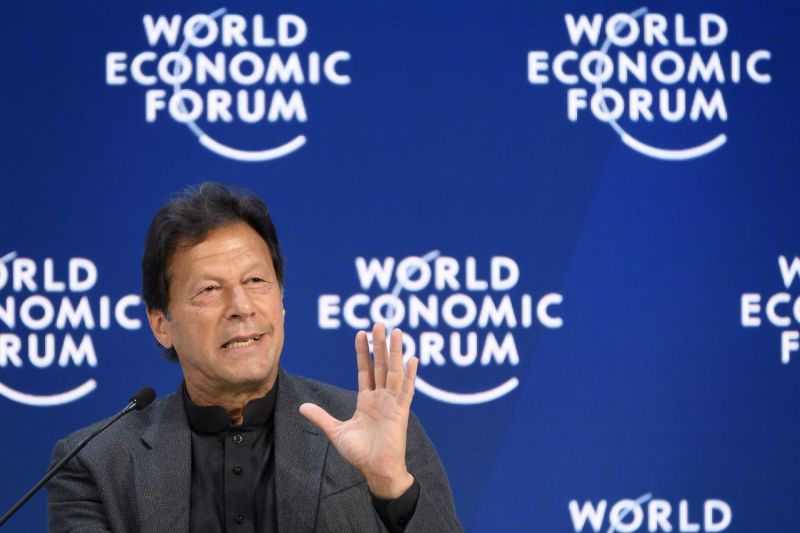Imran Khan, the Pakistani Prime Minister who is presiding over a country with negative economic growth (in US Dollars) and double-digit economic growth, has finally conceded that the uneasy relations with India have harmed the economic interest of the country. A few months ago, Pakistan suspended trade relations with India in the wake of Balakot airstrikes.
“Unfortunately relations with India haven’t been great,but when it normalises, world will realise Pak’s strategic economic potential,” said Imran Khan while speaking at World Economic Forum in Davos, Switzerland.
Pakistan used to export agricultural products to India, through direct trade as well as through third parties. But, the country itself suspended the trade links and argued that solving the ‘Kashmir dispute’ is a prerequisite to open up the direct trade. India, for which the trade with Pakistan does not account for even 1 per cent of total trade, was more than happy to shun the trade relations. But trade suspensions had hurt Pakistan for sure!
Previously, Pakistan’s Minister for Economic Affairs Hammad Azhar said the prevailing price hike, particularly the food inflation, emanated from the suspension of trade with India.
He said the centre was taking up the matter with provincial governments for setting up of Sasta Bazaars and effective use of the magistracy system to ensure relief to the public. He said the inflation would start going down in January-February. Pakistan government announced that it is considering buying tomatoes from Iran after its supply was hit by the lack of import from India and the prices of the fruit skyrocketed between Rs 180 per kg to Rs 300 per kg in several parts of the country.
The size of Pakistan’s economy is relatively tiny compared to India’s. The GDP of the country is $297.5 billion while the Indian GDP is $2.84 trillion. Gross domestic product (GDP) is a monetary measure of the market value of all final goods and services produced over a period of time.
In other words, the monetary value of goods and services produced in Pakistan is one-tenth of that produced in India. Even by measures of GDP by Purchasing Power Parity (PPP), Pakistan is almost one-tenth that of India. The GDP (PPP) of Pakistan is $1.14 trillion as compared to $10.385 trillion of India. PPP takes into account the relative cost of local goods, services and inflation rates of the country, rather than using international market exchange rates which may distort the real differences in per capita income.
Therefore, Pakistan could not withstand the restrictions by India. First Pakistan’s economic affairs conceded this fact, and now, finally, the Pakistani Prime Minister has also given up.
